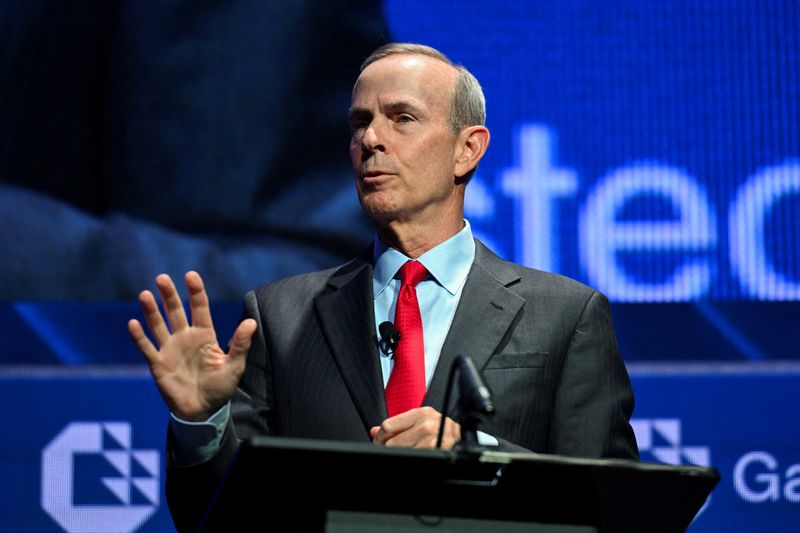Sheila Dang
4 min read
In This Article:
By Sheila Dang
HOUSTON (Reuters) - Top U.S. oil producer Exxon Mobil and Hess will meet face-to-face on Monday in a court hearing to determine the fate of Chevron's $53 billion deal to buy Hess and with it a prized stake in Guyana's prolific oilfields.
The planned acquisition, announced in October 2023, is one of the oil industry's biggest deals in years. It is key to Chevron CEO Mike Wirth's strategy of improving the oil company's performance. Exxon and China's CNOOC, Hess' partners in Guyana, filed arbitration disputes early last year, which have delayed the deal's closing and caused Chevron to miss out on increased output and revenue.
Hess' most attractive asset is its 30% stake in the Stabroek Block off the coast of Guyana, operated by Exxon. Guyana is one of the world's fastest-growing oil producers and the Stabroek Block is estimated to hold more than 11 billion barrels of oil equivalent.
Exxon and CNOOC claim that they have a contractual right of first refusal to purchase Hess' stake in the Guyana field.
Chevron and Hess argue the clause does not apply to the sale of the whole company. If they lose the arbitration and are unable to agree on an acceptable resolution with Exxon and CNOOC, the acquisition would fail, according to the terms of the deal.
A three-member arbitration tribunal under the International Chamber of Commerce will analyze the dispute in a confidential hearing that starts on Monday in London.
The joint operating agreement in the Stabroek Block between Hess, Exxon and CNOOC is governed by UK law, according to a source familiar with the terms.
By the time the hearing kicks off, Hess, Exxon and CNOOC should have already submitted in writing the majority of the testimony that will be considered by the tribunal, according to four international arbitration attorneys who are familiar with the ICC's procedures.
A spokesperson for Hess pointed to a previous filing that said the company expects a decision after the hearing in the third quarter, while an Exxon spokesperson referred back to previous public comments about the case. Chevron and CNOOC did not respond to requests for comment.
Prior to the hearing, the companies may submit documents and written statements from witnesses or experts they have called on to support their claims in the dispute.
This phase is typically the longest portion of arbitration proceedings, often taking a year, said William Kirtley, managing partner at Aceris Law, a boutique international arbitration law firm.
The average ICC arbitration case takes over two years to reach a resolution from the time proceedings are initiated, according to the court's annual report.













